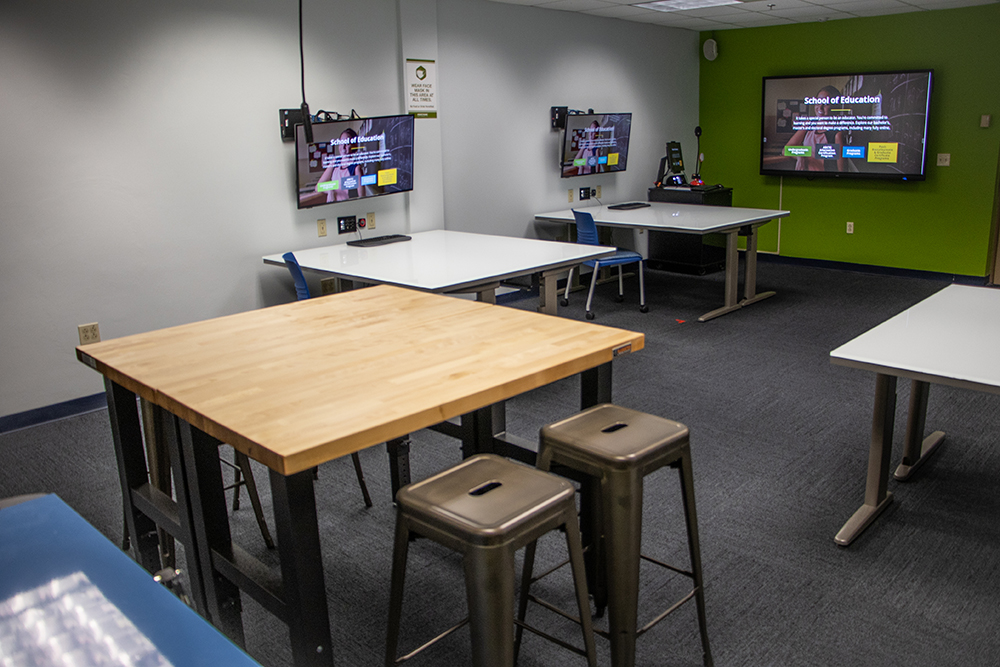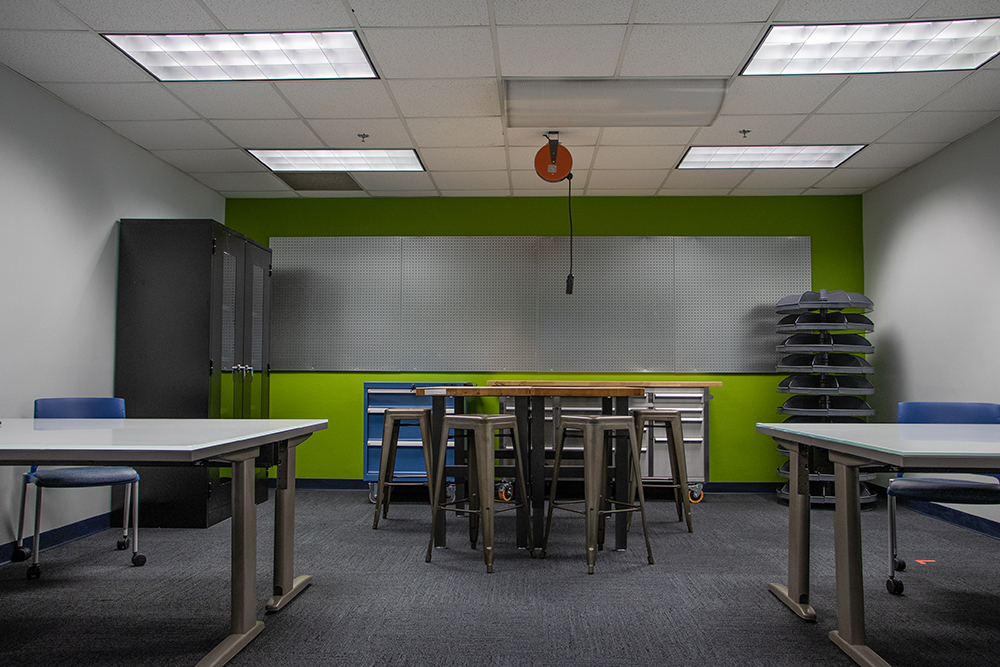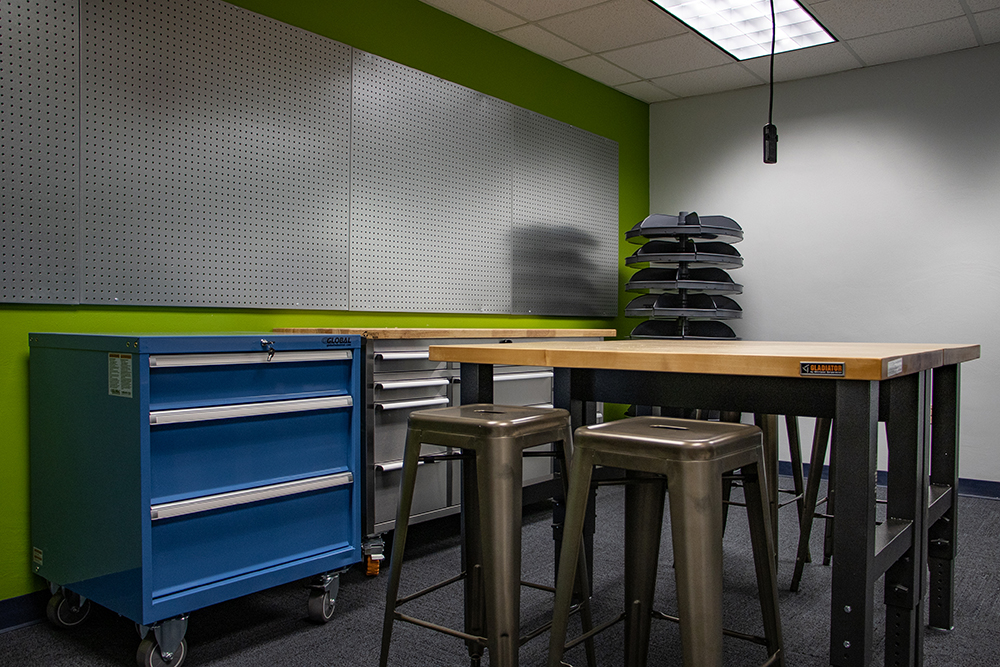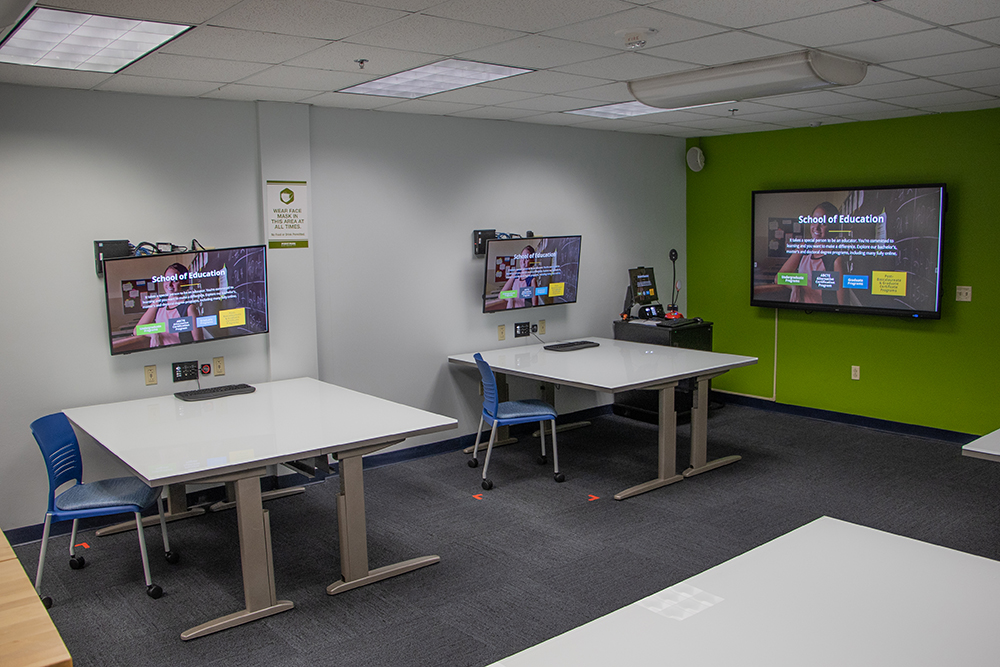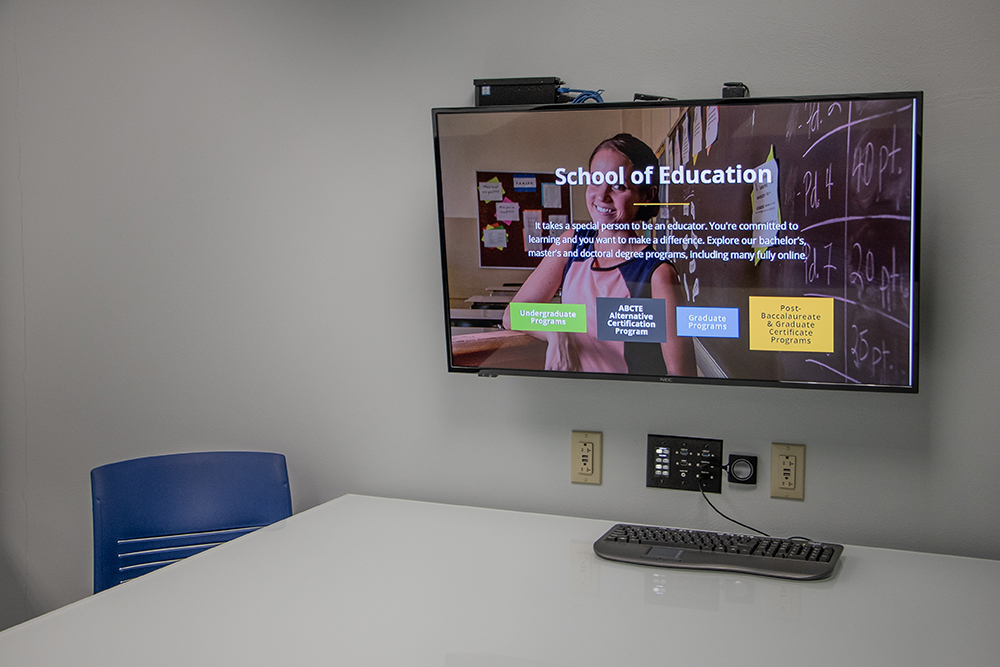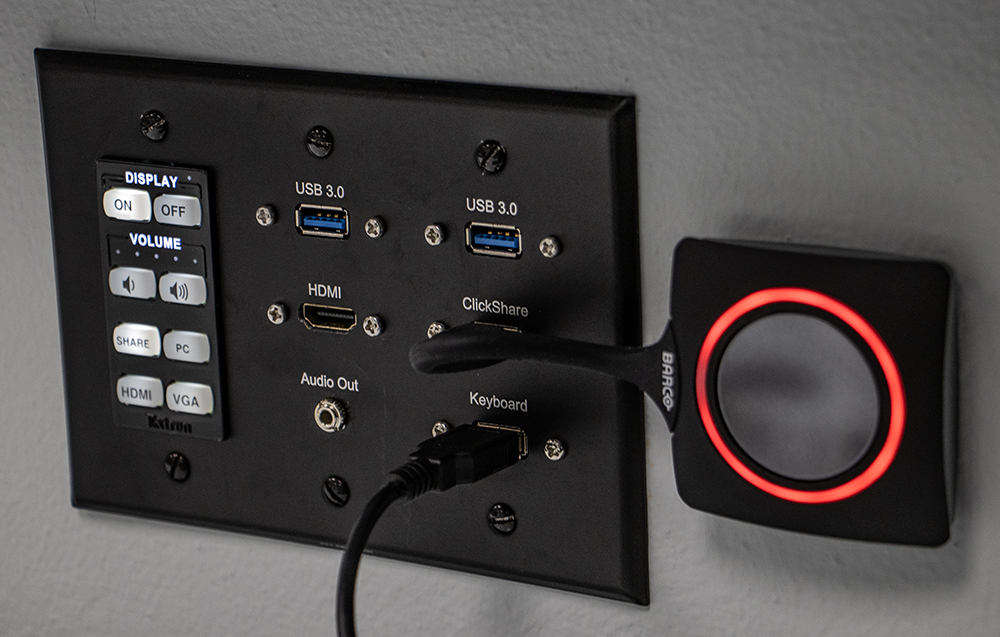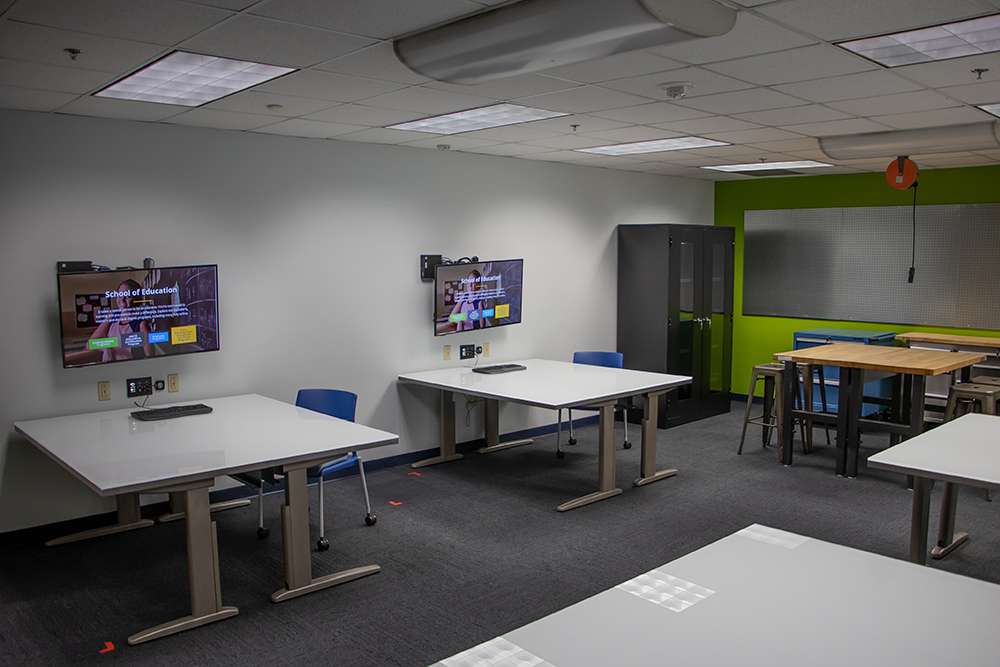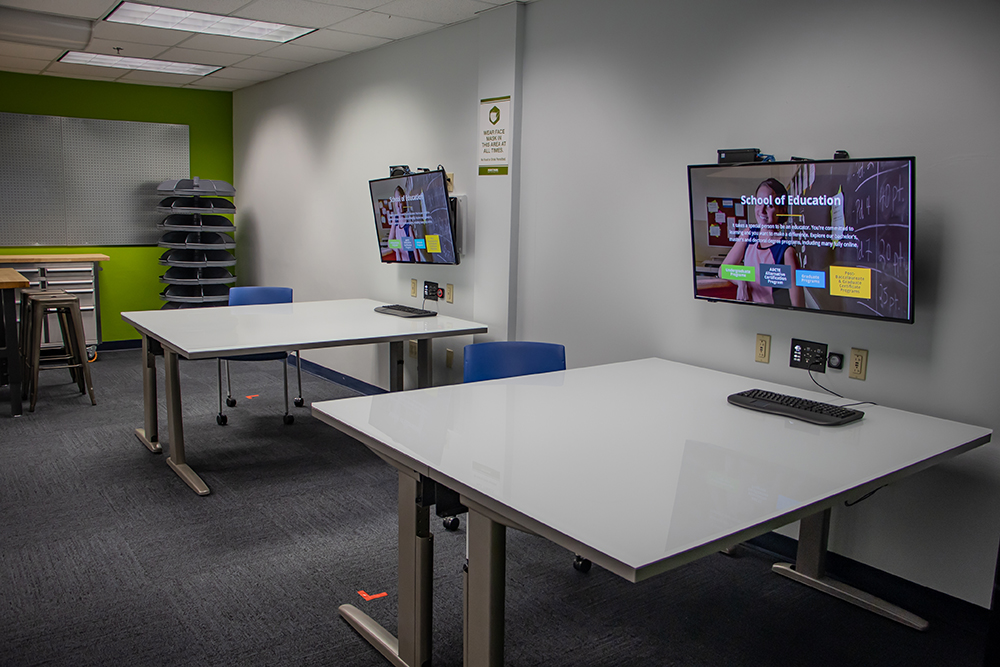Point Park University's School of Education Opens Matt's Maker Space Lab Tuesday, February 23, 2021
"Point Park investing its time and resources into a maker space just adds to how committed the School of Education is to bringing and implementing modern teaching strategies and approaches from around the world to its very halls and classrooms. They are researching what works, what does not work and not only implementing it into their teachings but providing resources and new ways of teaching to its aspiring educators."
A Matt’s Maker Space lab is opening at Point Park University, offering School of Education students the opportunity to immerse themselves in modern teaching and learning concepts related to K-12 STEM and maker education.
"Our goal for the new lab in the School of Education is to improve the quality and effectiveness of STEM education for our students," said Virginia Chambers, Ed.D., associate professor of education. "Our students will have the opportunity to explore and engage in maker space pedagogy through an interdisciplinary approach across various courses in their certification program. The faculty will be building on their own STEM teaching practices through structured professional development focused on cross-curricular maker space teaching and learning."
"While students are in their education courses, some of their learning opportunities occur during field experiences working in our local schools in the Pittsburgh region,” said Kamryn York, Ed.D., lecturer. “A few years ago, we noticed a shift in K-12 education that incorporated more STEM and maker learning objectives. Maker education is an approach to problem-based and project-based learning that relies on hands-on, collaborative learning experiences as a method for solving authentic problems. We recognized the need to incorporate this methodology in our education courses to best prepare our pre-service teachers to enter the classroom as certified teachers.”
The lab is named for local nonprofit Matt’s Maker Space, which donated to the University to bring the vision to reality. The organization was founded by Noelle and David Conover in 2018 in memory of their son, Matt, who passed away from cancer at age 12. The organization has created 27 maker spaces in the area, including spaces in Mt. Lebanon School District, UPMC Children's Hospital of Pittsburgh and UPMC Western Psychiatric Hospital. Point Park is the first university to house a Matt’s Maker Space.
“Prospective Point Park students should be aware that this new maker space is a unique and differentiating offering for the School of Education,” Noelle Conover said. “They will receive cutting-edge training that will give them an advantage when they become teachers."
Maker spaces are transforming learning far beyond Pittsburgh, said Darlene Marnich, Ph.D., founding dean of the School of Education. The new lab will give Point Park students a competitive edge as they enter the teaching field.
"While we see these maker spaces in many local school districts, they are being incorporated in education environments throughout the country," Marnich said. "Additionally, while visiting schools for our international student teacher placements, we found that the schools in Ireland and Spain were using the same spaces in their buildings."
The first time alumnus Daniel Strickland heard of a maker space classroom was when he did his student teaching placement at SEK Dublin International School in a 6th grade English classroom in Greystones, Ireland. He said his students preferred the maker space to the typical classroom in a lot of ways, as it offered an alternative learning setting with a variety of materials and technology tools.
"Point Park investing its time and resources into a maker space just adds to how committed the School of Education is to bringing and implementing modern teaching strategies and approaches from around the world to its halls and classrooms," said Strickland, who is a special educator at Baltimore County Public Schools. "They are researching what works, what does not work and not only implementing it into their teachings but providing resources and new ways of teaching to its aspiring educators."
Some of the equipment students can expect to use in the lab include:
- 3D printer
- Virtual reality goggles
- Green screen production kit
- K'NEX
- littleBits kits
- MaKey MaKey kits
- Modular Robotics Cubelets
- Sphero robots
- GoldieBlox project kits
- KEVA Planks
- Wonder Workshop Cue Robot
- Strawbees School Kit
Learn more about the new space in the Q&A below with Dr. York and Conover.
Describe the maker curriculum movement and its educational impact and outcomes.
Kamryn York: Over the past decade, the maker space education movement has been on the rise. Educators, along with policy makers, have expressed a heightened interest in maker-centered learning, particularly in STEM learning. Maker space labs or classrooms are the physical, collaborative work spaces for making, learning, exploring and sharing, and they utilize high-tech as well as no-tech tools.
According to the U.S. Bureau of Labor Statistics, STEM professions are expected to grow 8.8% in the next 10 years. We have an opportunity to improve STEM learning and teaching by using maker space education as a way to integrate STEM concepts throughout an interdisciplinary curriculum. Regionally, there is a growing need to better prepare pre-service teaching students to work in maker-centered STEM education classrooms. Pittsburgh has emerged as a national leader in maker space education.
What is the Making It Happen in Makerspaces program, and how is Point Park involved?
KY: The School of Education has been selected as one of five organizations in the greater Pittsburgh area to participate in the program, which is affiliated with the MakerEd Making Spaces: Expanding Maker Education Across the Nation. The other partners include The Education Partnership, West Middlesex School District, Sister Thea Bowman Academy and UPMC Children's Hospital. This is an opportunity to join together with regional partners to set the vision and mission of our new maker space classroom on campus.
The program aims to expand the understanding of maker education. Maker education offers a transformational approach to teaching and learning that attends to the real and relevant needs of learners and humans. It is an approach that positions agency and student interest at the center, asking students to become more aware of the design of the world around them and begin to see themselves as people who can test their ideas, make changes and improve their results.
What excites you about the new maker space at Point Park?
Noelle Conover: I am most excited about Point Park because it is in a department of education, where pre-service teachers will be taught the fundamentals of maker learning. We know that today the teachers who are graduating from most universities do not have experience teaching in a maker space. It is a unique blend of facilitating, encouraging, inspiring and allowing students to discover things on their own by trial and error. At the Matt's Maker Space at Point Park, the pre-service teachers will get to practice and refine these skills. This will prepare them for their positions in the world of 21st century learning.” They will have the edge over other graduates because of this unique opportunity to learn in a Matt's Maker Space.
Why is maker space curriculum important?
NC: Maker spaces teach students to think creatively and explore new ideas in a safe space. Because of the nature of the maker space environment, students feel more comfortable asking questions they may not have asked in the classroom. This exposes them to new ideas and ways to think. However, there is a need for a curriculum to be written for maker space learning. It needs to be integrated with core skills so that teachers who want to use the space to teach a core skill can benefit from a curriculum that has already been tried and verified. Matt's Maker Space is unique in that we provide a Lesson Library for each of our maker spaces that provides access to an electronic repository of well-established and verified lessons that are tied to core skills and subjects.
More About: special education, education, UPMC, School of Education, Pittsburgh, early childhood education, faculty, secondary education, STEM students, elementary education


